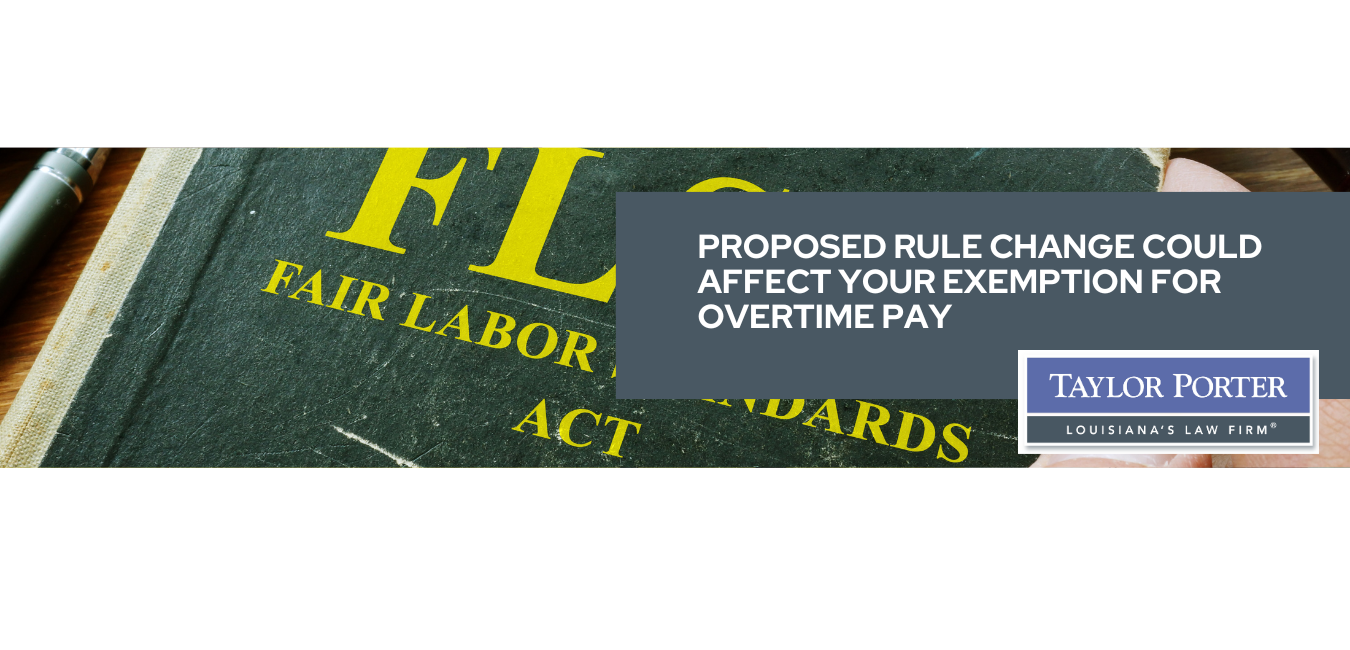“Get Your House in Order” - Estate Planning Steps to Take in Crisis Planning
By Justin Mannino
Taylor Porter Estate Planning Attorney
justin.mannino@taylorporter.com
 The last few weeks have been uncertain ones, to say the least, due to the Coronavirus Disease (COVID-19) as the global response to COVID-19 has caused volatility in the stock market, changed the way businesses operate, and interrupted our daily routines. First and foremost, our priority is the health and safety of our clients, attorneys, and staff during this crisis. Most people have taken COVID-19 very seriously because of the unpredictability surrounding it. People have been running to grocery stores and pharmacies to buy supplies and taking appropriate medical and sanitary precautions to combat the outbreak and transfer of the virus.
The last few weeks have been uncertain ones, to say the least, due to the Coronavirus Disease (COVID-19) as the global response to COVID-19 has caused volatility in the stock market, changed the way businesses operate, and interrupted our daily routines. First and foremost, our priority is the health and safety of our clients, attorneys, and staff during this crisis. Most people have taken COVID-19 very seriously because of the unpredictability surrounding it. People have been running to grocery stores and pharmacies to buy supplies and taking appropriate medical and sanitary precautions to combat the outbreak and transfer of the virus.
However, as we all continue to plan for life's uncertainties, the Estate Planning and Tax Group at Taylor Porter would like to remind you to get your house in order, so to speak, and think about estate planning documents needed to plan for your future. Coincidentally, this imperfect situation may also be a perfect time for individuals and business owners to do some early spring cleaning of your files and take care of estate planning needs, particularly in the instances of having put off any planning measures prior to the COVID-19 pandemic.
A General Power of Attorney, a Healthcare Power of Attorney and a Will are important documents that most people should consider when it comes to filing required estate planning documents.
The General Power of Attorney allows your designated agent to make financial and other business-type decisions on your behalf, and the Healthcare Power of Attorney permits your designated agent to make health care decisions in the event of your incapacity, such as whether to permit certain procedures or medications or to allow an examination by certain healthcare professionals.
Your Will governs the disposition of your probate assets following your death, such as your house, business interests, and financial accounts but does not govern the disposition of nonprobate assets such as life insurance, annuities, 401k’s, IRAs, and Roth IRAs. It is important to make sure that you have provisions in your Will that account for those who need support and guidance most, particularly young children or children with special needs. Having these documents on hand may provide comfort and prove useful in this time of crisis. With respect to the nonprobate assets, it is crucial to make sure that the beneficiary designations associated with each of the nonprobate assets fit into your overall estate plan and do not generate any unintended consequences.
These documents are critical and essential for business owners who do not have a succession plan in place for the operation of their business, and for individuals who become temporarily incapacitated and are not able to pay bills, taxes or take care of family financial obligations.
The Estate Planning and Tax Group at Taylor Porter is here to help you initiate these estate planning documents, review any existing estate planning documents, and to answer any questions you may have around planning for you, your families, and your business' future.
This website is for general information purposes only. Information posted is not intended to be legal advice. For more information, please see our Disclaimer message.
See how we can help. Contact us today
8th Floor • 450 Laurel Street • Baton Rouge, LA 70801 • 225-387-3221
- Disclaimer
- © Taylor, Porter, Brooks & Phillips L.L.P. All rights reserved.






